Finishing Matric isn’t easy – and it’s not just the exams we’re talking about. There’s huge pressure on matriculating students to know what they want to be, and to have it all figured out. If you’re stuck and wondering what to do after Matric, you should know that there are many options for you, even in these uncertain times. In this blog, we take a look at all the things you can do after Matric, and give you advice on their pros and cons.
Taking the University Route
This is probably the most common answer you’ll hear if you’re wondering what to do after Matric. It’s easy to see why so many people advise it: on paper, universities offer a formal, in-depth education, where you can study for your career specialisation and graduate with a recognised degree from a reputable university.
The sad truth is that university remains out of reach for thousands of students.
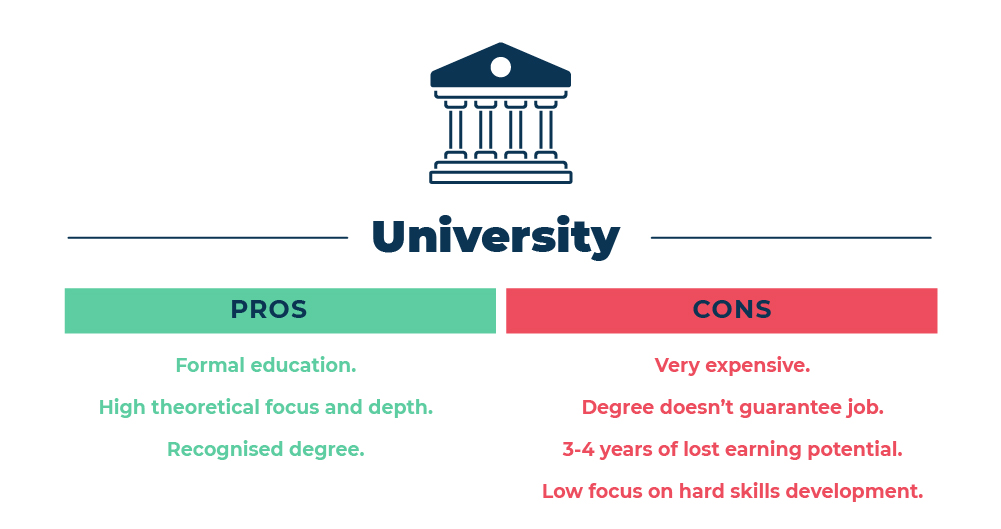
Many South African youth are simply unable to afford a university education. According to Statistics SA, 51% of youth aged 18–24 claimed that they did not have the financial means to pay for their tuition. This is a problem, because every year tuition fees continue to rise by up to 25%; in South Africa, the cost of going to university has skyrocketed, with an undergraduate degree costing on average between R30,000 and R70,000 per year.
Many South African youth are simply unable to afford a university education. According to Statistics SA, 51% of youth aged 18–24 claimed that they did not have the financial means to pay for their tuition. This is a problem, because every year tuition fees continue to rise by up to 25%; in South Africa, the cost of going to university has skyrocketed, with an undergraduate degree costing on average between R30,000 and R70,000 per year.
All of this is happening as COVID-19 and the global shutdown forced universities to do online courses and restrict in-person learning. Ask yourself, would you pay R70,000 for just Zoom calls?
Then there are two other issues. Firstly, while you’re studying, your career development is on pause. So when you graduate, chances are you’ll apply for a job without having the two or three years’ experience the vacancy requires. Secondly, this time is lost earning potential: by the time you graduate after 4 years, you’d be over R700,000 in total income behind someone who started working after a one-year study program, like a bootcamp – and that’s without mentioning the debt a lot of students accumulate during their studies.
Besides, there are plenty of things that make a bootcamp better than university.
Gap it on a Gap Year!
A gap year is a lot of fun. It’s a good opportunity to push the reset button and find out what kind of person you are outside of high school cliques and small town boundaries.
If you have the money to take a whole year off, that is.
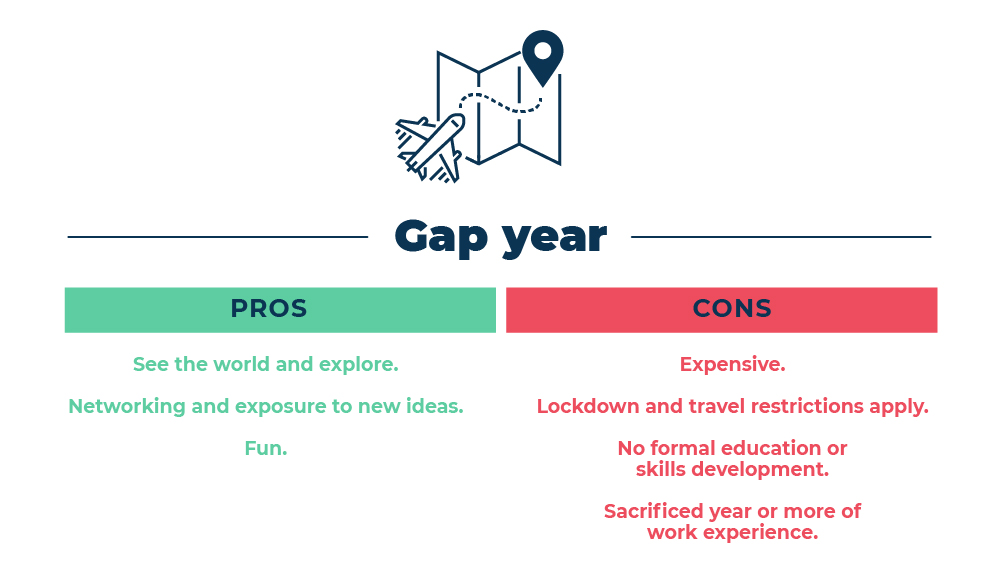
Gap years fall into the same trap as universities: they’re fun and tempting, but they carry significant financial costs – and that’s without considering the outright bans and uncertainty that COVID-19 and global travel lockdowns have introduced. Then there’s the painful reality that gap years aren’t what you see on Instagram. Often your options for fun stuff like sightseeing, snorkeling, and travelling are limited or impossible because of the expense. Then, if you do take work to make some money to do fun stuff, the work is entry level and the pay is shockingly low.
There’s also the fact that once your gap year is over you won’t automatically have transferable skills or qualifications that you can use to find a job. If you are thinking of a gap year, you should also be thinking about what short skills development programs – like bootcamps – you can do to ensure that “finding yourself” isn’t a sentence that ends with “in a very difficult career position”.
Thinking about College?
The trades are a great industry to end up in, if you’re thinking about what to do after Matric. They offer steady work and reasonable pay, and let you develop skills that you can use anywhere in the world.
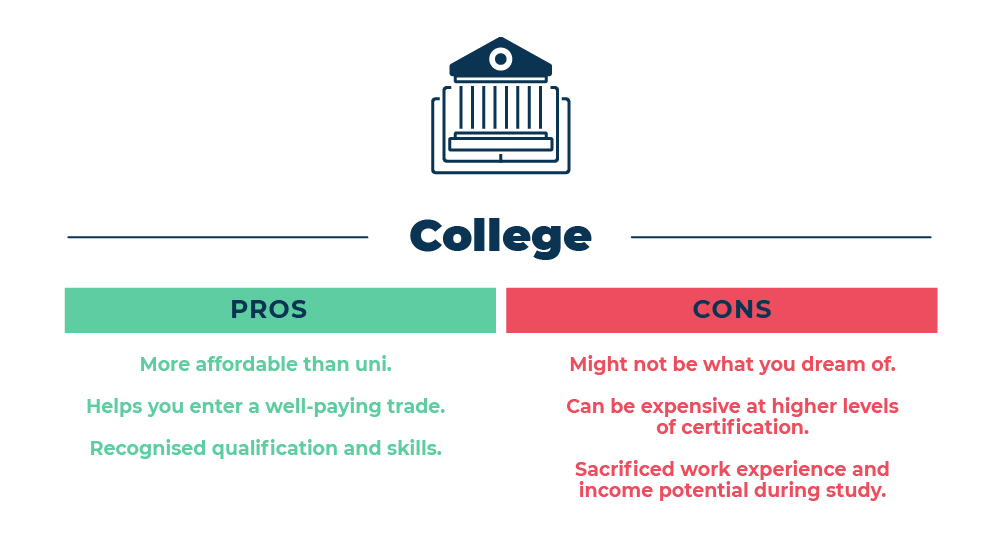
Colleges and technikons (and similar technical schools) teach you hands-on skills in these fields, and also give you an industry-recognised qualification when you graduate. They’re also reasonably priced and follow a practical structure, so that you don’t get lost in endless impractical theory. Best of all, the technical skills you learn (such as electrical engineering or plumbing) usually feature on critical and scarce skills lists, meaning you have options and demand for your skills wherever you go.
However, these aren’t the most glamourous jobs: the trades can involve hard or dangerous work, and while the supply of work is consistent, it’s also a pressured environment that features a lot of travel and on-site work.
The realities of entering the world of work
Making your own money right away is always at the top of the list when thinking about what to do after Matric. It brings you more freedom, choice, and helps you to start building your career with valuable work experience.
With the number of graduates and degrees in the jobs market these days, hiring managers are on the lookout for people with a proven track record of professional success. Companies realise this too: it’s easier to hire someone who has the experience than to take a risk on a fresh graduate who might need extra training.
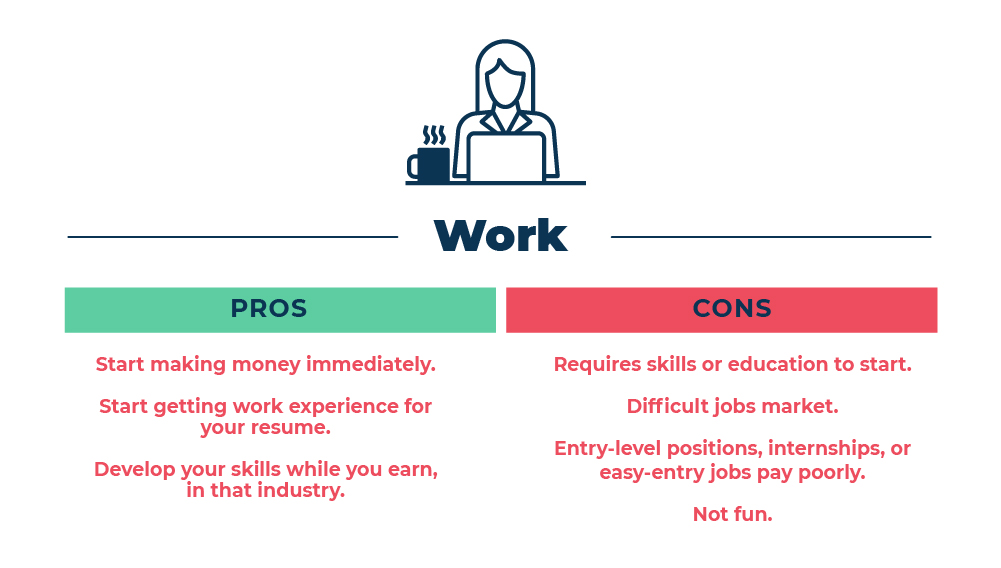
However, there are several problems with the advice of “just start working”.
Many jobs require some sort of certification for you to be eligible, or at least some proof that you have the relevant qualifications and skills to do the work.
Plus, if you find work that doesn’t have a lot of eligibility clauses and requirements for certificates or degrees, chances are you’ll be competing for those jobs with thousands of other applicants – and the jobs market is incredibly tough at the moment for these kinds of jobs. Approximately 8.2 million (40.1%) of South Africa’s 20.4 million young people aged 15 to 34 are not in employment, education or training of any sort, according to the latest figures released by Statistics SA in the Quarterly Labour Force Survey (QLFS), and the official unemployment rate increased (from its 11-year peak) by 1.0 percentage point to 30.1% in the first quarter of 2020 compared to the fourth quarter of 2019.
If you’re looking to get a job after school, the reality is you’ll need the skills – or education – to stand out from the crowd.
Why Not Consider a Bootcamp?
A coding bootcamp offers it all: you can develop in-demand, transferable tech skills; you can fit education into an active career or travelling itinerary; and you can build a demonstrable portfolio of practical work experience without needing to sacrifice years of time and lost earning potential, or having to pay hundreds of thousands of rand in tuition.
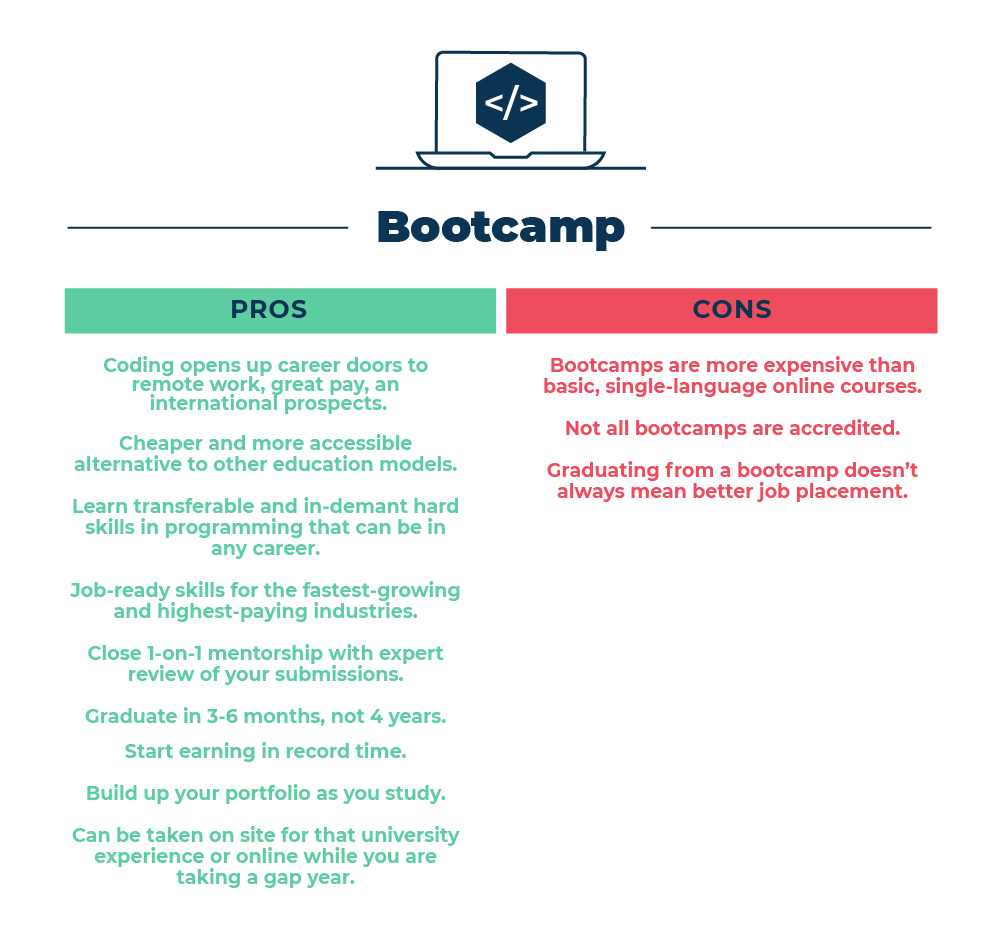
The most valuable thing about a coding bootcamp is that you’ll learn the technical skills that thousands of industries are fighting over, as they move their businesses remote, their stores online, and make their operations digital. Knowing how to code and work with technology is key to a career that is both worldproof and futureproof: so you’ll be able to work whenever, wherever, and no matter what global events break out.
Are you uncertain about what to do after Matric? Why not try our coding bootcamps? Our bootcamps are designed for you to succeed, with full dedicated mentorship, expert code review, and full career development support. Best of all, you can start learning right now, without even needing your matric or any previous coding experience. Get in touch with an Admissions Consultant to learn how we’ll help you build your future with essential tech skills.
If you want to start learning the very basics of coding, totally free of charge, then click here to apply now, where you can learn the essentials in data science, full stack web development, or software engineering.


